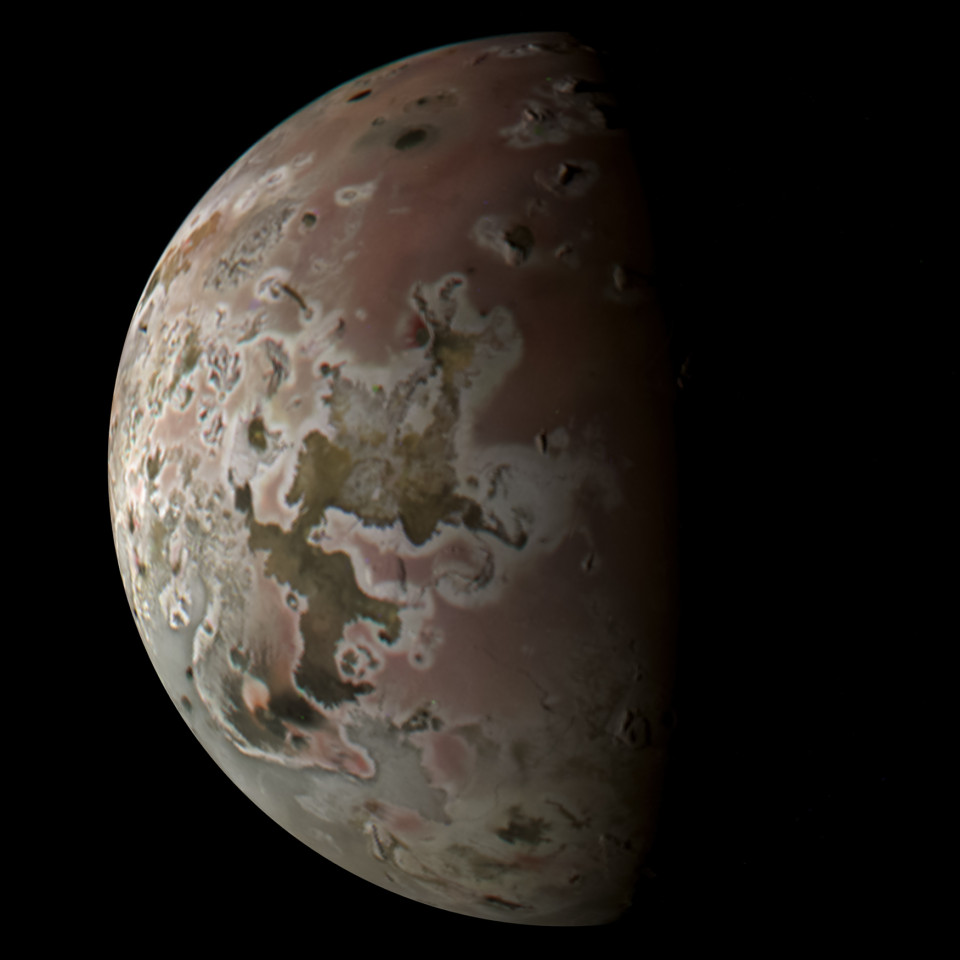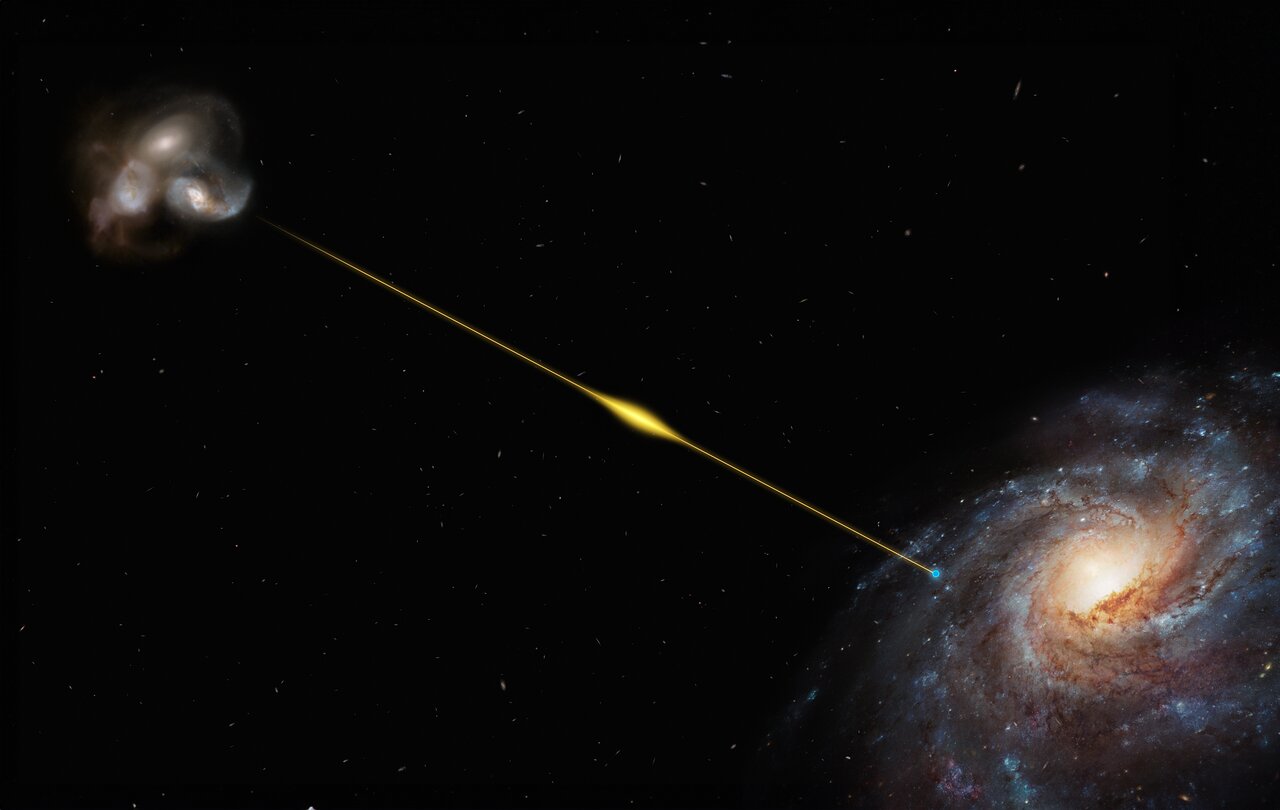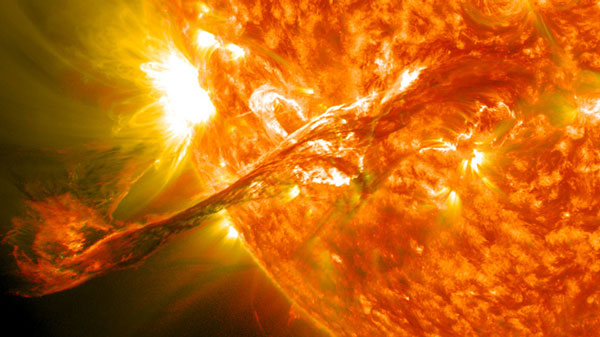
November Podcast: Horse, Dolphin, Arrow, and Fish
With Jupiter and Saturn leading the way each evening, you can use this month’s Sky Tour podcast to track down some lesser-known constellations — and the most distant celestial object that you can see with just your eyes!

Dead Stars Come to Life This Halloween
The ghostly lights from two dead stars have stories to tell.

The Black Hole Files with Camille Carlisle
Black Hole Rain
The planned LISA gravitational-wave detector might discover a shower of hundreds of small black holes falling in galactic centers.

AAS Quasquicentennial: Celebrating 125 Years in 2024
The American Astronomical Society is celebrating its 125th anniversary. Visit the AAS site to learn more about this exciting milestone.

Ghost-like Galaxy Defies Dark Matter Model
Astronomers have discovered a large but very dim ghost-like galaxy. Its existence challenges our notions of dark matter.

This Week's Sky at a Glance, October 27 – November 5
The full Moon on October 28th shines near full Jupiter at opposition this week. Telescopically, Jupiter this week is as big as you'll ever see it,

Marsquake Reveals Molten Layer Above Martian Core
An impact far from NASA's Insight lander on Mars set off seismic waves that revealed new details about the Martian interior.

A Windy and Wonderful Icelandic Aurora Adventure
Sky & Telescope’s recent tour to Iceland explored all the island’s sights — and kept S&T’s record at a solid nine for nine for seeing auroras!

Largest-ever Computer Simulation of the Universe
The Flamingo simulations are not only the largest but also the most all-encompassing simulations of the universe, from 13.75 billion years ago to today.

Striking New Views of Jupiter and Its Moon Io
The James Webb Space Telescope and Juno mission turned their eyes to Jupiter and its volcanic moon Io, revealing fine details.

This Week's Sky at a Glance, October 20 – 29
The waxing Moon in the evening sky visits Saturn, then Jupiter. And as Halloween approaches, Arcturus becomes the Ghost of Summer Suns.

Radio Burst Breaks Distance Record, Challenges Theories
A highly energetic fast radio burst, which broke the distance record, provides a crucial test for theories of these events' origins.

A New Hope? Taming the Satellite Swarm
Going by the paperwork, 1 million satellites are headed for the skies. The question is, how many of these are real? New policy may help stem the tide.

Explore the Night with Bob King
Orionid Meteors Fly; Two Moons Shadow Jupiter
Bundle up and enjoy the Orionid meteor shower under moonless skies this week. Don't miss the warm-up act, either, when two of Jupiter's moons pair up in a captivating double-shadow transit.

Unearthing a Solar Storm in Ancient Alpine Trees
Ancient pine trees hold the record of an atmospheric event 14,373 years ago. The only known explanation is a massive solar storm.

Annular Solar Eclipse Dazzles Watchers Across North America
The weekend's solar eclipse dazzled observers throughout the U.S. and Mexico. Sky & Telescope editors and contributing editors report.

How to Observe the October 14th Annular Solar Eclipse
If you'll be in the path of the October 14, 2023, annular eclipse, here's what you can look for as the Moon covers the face of the Sun.

Where to Watch the October 14th Annular Solar Eclipse Online
If you can't see the annular solar eclipse in person, we've got some online viewing opportunities for you.

Psyche Mission Is on the Way to Psyche, the Asteroid
The Psyche mission launched today, on its way to rendezvous with the asteroid of the same name in 2029.

This Week's Sky at a Glance, October 13 – 22
The week's big event is the Moon stepping on the Sun on Saturday the 14th. But the Moon's not done. Several days later it steps squarely on the handle of the Sagittarius Teapot, then on Herman's Cross. Show-off. Image: S&T's Sean Walker resolves Io half lit as it slips into Jupiter's shadow.
